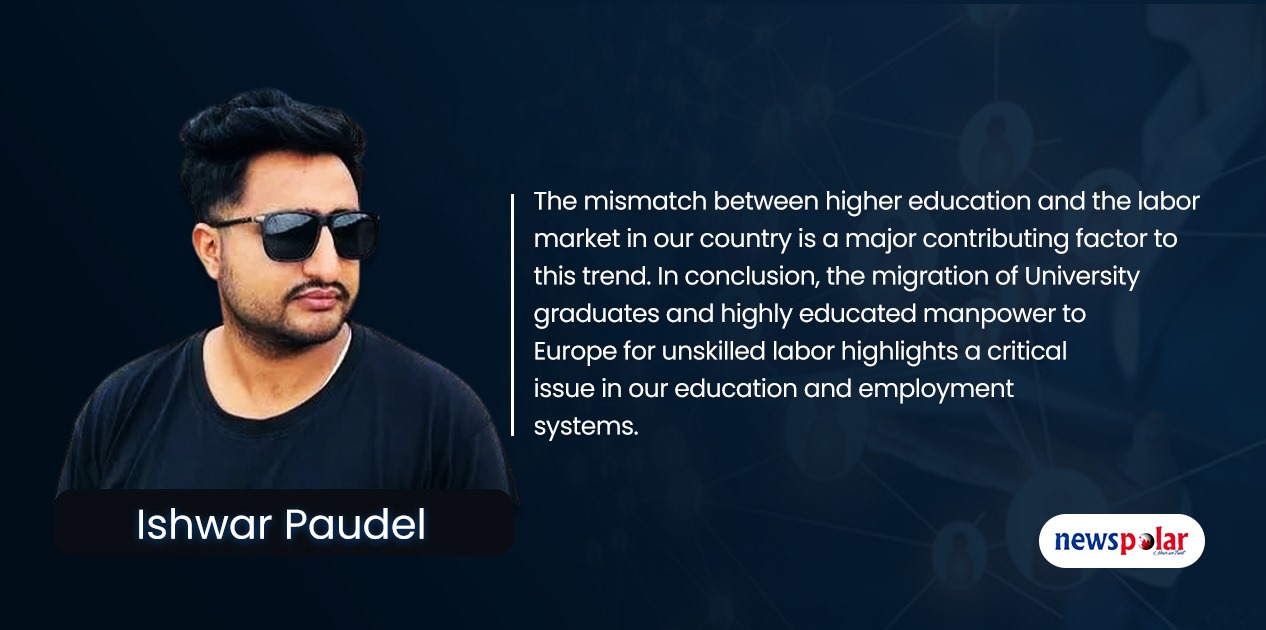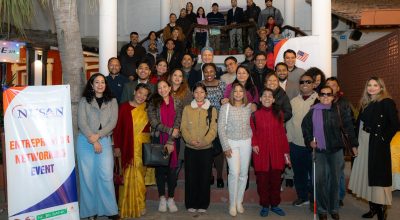
Higher education and employment are extremely distinct. It is not required to have a strong academic background to land a relevant job. Although obtaining a higher education is typically
seen as a first step toward more career options, there is mounting evidence that the abilities individuals learn in education frequently do not meet the demands of employers.
Despite the large number of graduates that graduate each year, according to a World Economic Forum survey, many businesses find it difficult to locate people with the needed abilities and skill set they require for the job. This disparity raises attention to a basic problem: higher education establishments are failing to provide their students with the digital, soft, and practical skills that employers in today’s labor market highly value.
The growing preference for vocational pathways over traditional academic routes underscores the urgent need for higher education institutions to reform their curricula to better meet the evolving demands of the workforce. Without such reforms, the gap between higher education and employability is likely to continue widening, leaving graduates ill-prepared for their careers. In recent years, there has been growing recognition of the fact that the skill sets of the workforce required by employers for economic vitality and competitiveness are more than associations conventionally associated with a labor force with a two- or four-year college degree.
Many articles and reports have been produced during the last several years, focused on such issues as the changing skills required in the changing contexts of the world of work, the decreased significance for employment of a four-year college degree, the immensity and importance of the current dropout population, and the need to assist the high school graduate in moving beyond the entry-level position. This has been accompanied by a major federal and state reaction through mandates for a broadening of the curriculum to assist the high school graduate to develop 21st-century workplace skills and by federal funding to encourage teacher preparation, as well as school- and district-wide initiatives in recalibrating the educational system in meeting the new skill challenges. It is clear from the review of reports generated in response various issues is that the knowledge base surrounding workforce skill sets is not clear, particularly with regard to the changing nature of the postsecondary labor force.
we have seen Bachelors degree holders graduate are moving to European countries for unskilled job like, construction worker, kitchen helper, plumber and painter assistance and factory worker it’s the harsh reality that my many friends are moving and I am not far from this reality. This is the awful reality of youth force, who are willing to work in abroad after University high degree. In recent years, there has been a noticeable trend of university graduates from developing countries, including ours, migrating to European nations for unskilled labor jobs.
Positions such as kitchen helpers, painter assistants, and other entry-level roles are increasingly attracting young graduates, despite their higher education qualifications. This phenomenon raises
significant questions about the effectiveness of our education system and the employment opportunities available domestically. University graduates are expected to contribute to the economy through skilled jobs, leveraging the knowledge and competencies gained during their studies. However, the reality for many is quite different. A combination of limited job opportunities, low wages, and inadequate career development prospects forces many graduates to seek employment abroad, even in roles far below their qualification levels.
Here are some report that High school graduates are moving to Europe for unskilled job.
European Labor Authority (ELA) Report, 2023:
The ELA’s 2023 report on labor migration highlighted that a significant portion of migrant workers from non-EU countries, South Asia, are employed in unskilled labor positions in Europe.
The report noted that nearly 30% of these workers possess higher education degrees, including bachelor’s and master’s qualifications.
International Labour Organization (ILO) Global Migration Trends Report, 2022:
The ILO’s 2022 report provided data on the migration patterns of skilled and unskilled workers. The report revealed that approximately 25% of university graduates from developing nations
migrate to Europe and take up jobs in sectors like hospitality, construction, and agriculture, which are often unrelated to their fields of study.
World Bank Study on Brain Drain, 2021:
A World Bank study from 2021 examined the “brain drain” effect, where educated individuals from developing countries migrate to more developed nations for employment. The study found
that in some countries, up to 40% of university graduates are employed in low-skill jobs abroad, driven by the lack of suitable employment opportunities at home.
OECD Migration Outlook, 2022:
The OECD’s 2022 report on migration trends indicated that within Europe, nearly 35% of non- EU migrants with university degrees are working in jobs that require lower qualifications. This
is particularly prevalent in countries like Germany, Italy, and Spain, where there is a high demand for unskilled labor in sectors such as hospitality and construction.
Research by the Migration Policy Institute (MPI), 2022:
The MPI’s research in 2022 found that a significant number of university graduates from South Asia and Africa are employed in unskilled roles in Europe. The report highlighted that in countries
like the UK and France, 20-25% of immigrants with higher education are working in sectors such as domestic work, caregiving, and food services. These reports underscore the growing trend of educated individuals migrating for unskilled labor due to limited and no opportunities in their home countries. It reflects awful condition of underemployment among graduates, emphasizing the need for better alignment between higher education and labor market demands.
The mismatch between higher education and the labor market in our country is a major contributing factor to this trend. In conclusion, the migration of University graduates and highly educated manpower to Europe for unskilled labor highlights a critical issue in our education and employment systems. To address this, it is essential to realign higher education with skill development and market needs create more opportunities for graduates to utilize their skills domestically. Only education without useful skills, our University is becoming is factory to produce educated unemployment’s by doing so, we can retain talent and ensure that our educated workforce contributes meaningfully to the nation’s development.
















